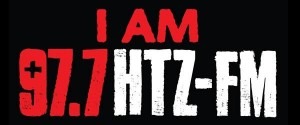 You hear a lot about storytelling these days, but what does it mean and how can you incorporate this ancient art into how your station brands?
You hear a lot about storytelling these days, but what does it mean and how can you incorporate this ancient art into how your station brands?
All this matters because even Arbitron has come full circle on the power of branding in PPM. If you remember at its beginnings, the conventional wisdom was that branding no longer mattered with meters – it was about actual listening. Thus, many stations cut back on frequency/call letter mentions as well as basic branding.
But the industry got smart in a hurry, and Arbitron clearly acknowledges that without a strong brand foundation, consumers aren’t going to be able to remember what you’re about when it’s time to make the big decision to listen to the radio.
Brands and branding matter.
But your brand is not about “We’re the Country Station” or “Playing favorites from the ‘80s, ‘90s, and Today.” Your brand is comprised of a narrative.
Great radio brands have episodic stories that are rarely, if ever, told.
We often make three big mistakes in radio:
- Our great brands are often ignored because there is another station in the cluster that “needs our attention” more. As a result, the big moneymaker and great brand is often pushed aside when it comes to attention and resources.
- We focus on facts instead of communicating “why” consumers should listen to our stations. A great narrative provides a simple and effective rationale that can connect consumers to your brand.
- We let the audience make up our story, no matter how they skew or warp it. If you still do focus groups, you have seen it with your own eyes. Hearing listeners tell your brand story is almost always filled with mistakes and misconceptions. Great brands provide the audience with the right version of their narratives.
A 3 year-old piece in Fast Company speaks to the importance of storytelling when it comes to brands, and it’s something that everyone in radio should take to heart.
As writer Melinda Partin reminds us, “The goal with corporate-brand storytelling is to transition the consumer from awareness to trial to advocacy. You want people to use your brand to describe their life: A “Windows User,” a “Mac Guy,” a “Honda driver” and so on. Once the consumer adopts a product into his or her personal story, brand exposure increases greatly.”
In radio terms, it might translate to these types of examples:
A KISW “Rockaholic”
A Link fan
A member of WROR’s “At-Work Nation”
She also reminds us that when you’ve built that type of brand equity, consumers are often forgiving when those occasional screw-ups occur. Case in point? Siri and Apple Maps. They fly in the face of Apple perfection, but true fans look past these speed bumps because of their love for the brand.
 Melinda also notes that brands have the tools to get their stories out there, especially during radio’s “new normal” where marketing dollars – particularly for market leaders – are in short supply or non-existent. Tools like the email databases, blogs, Twitter, Facebook, Instagram, and sharing are all part of the digital weaponry that radio brands need to master.
Melinda also notes that brands have the tools to get their stories out there, especially during radio’s “new normal” where marketing dollars – particularly for market leaders – are in short supply or non-existent. Tools like the email databases, blogs, Twitter, Facebook, Instagram, and sharing are all part of the digital weaponry that radio brands need to master.
Harnessing the power of brand storytelling is the way for radio stations to move from awareness to cume to partisanship to loyalty.
As Partin points out, the key to understanding your brand’s narrative is to understand how the station fulfills your “customer’s emotional needs.” This was an area we dove into in Techsurvey8 (remember “Radio’s Emotional Triggers”), and we will expand our search for more of those emotional underpinnings in Techsurvey9 early in 2013.
Learning how to intelligently integrate social media and other digital tools can help your best brands tell their great stories, and cement their values into the minds and hearts of your audience.
Tell your brand’s story – don’t just fire off positioning statements.
And let your audience share the excitement with their social communities.
Stories matter.
- What To Do If Your Radio Station Goes Through A Midlife Crisis - April 25, 2025
- A 2020 Lesson?It Could All Be Gone In A Flash - April 24, 2025
- How AI Can Give Radio Personalities More…PERSONALITY - April 23, 2025




“Your tale, sir, would cure deafness.”
― Shakespeare, The Tempest
“To hell with facts! We need stories!”
― Ken Kesey
“You know what a storyteller is, don’t you? It’s a person that has a good memory who hopes other people don’t.”
― Sandra Dallas
Good quotes, Ralph. And I’ve never heard a child say, “Tell me a good positioning statement, Mommy.”
We are Country and big time Country .. but I thought Community Country was a little cheesy. Currently “Today’s Best Country” which I’ve got to change. Maybe “Country Community 105 CJVR. “Your Town, Your Country” might be better.
Bill, maybe it’s not so much a matter of picking the right positioning statement as it is communicating your brand’s story to your audience – so they can communicate it to THEIR audience. Thanks for reading our blog.
Great post Fred –
The concept of “storytelling” can sound overwhelming to many. It’s like telling jokes…not everyone can do it well and it can be intimidating. So lets simplify what storytelling really is in its most basic form that everyone does everyday…storytelling is a form of sharing. Great conversations are centered on sharing something of relevance to who you’re talking to.
Think about the inner circle of people in your life or your clients in business or even someone you don’t know but want to…you’re always looking to share something that informs, entertains or improves their day in some way. When you provide a product, service or experience that makes people feel good about themselves…they can’t wait to tell someone, they want to share it. Relevant sharing builds trust that you have something to add to their life. Lasting relationships are built on the relevant sharing that reinforces that trust. All great brands are built on trust.
One of the best things you will read on sharing is from Hugh McLeod @gapingvoid.com. To quote Hugh – Note to Social Media Marketing Dorks: The hard currency of the Internet is not Facebook “Likes” or Twitter “Re-tweets”, as flavor-of-the-month as they might be. By themselves, they’re worthless. The hard currency of the Internet is “Social Objects”. i.e. Social Objects for people to SHARE MEANINGFULLY with other people. You’re either creating them or you’re not. And if you’re not, you will fail, end of story. https://gapingvoid.com/so/
Mike Anthony
For some reason, Mike, the basics of storytelling and sharing are often lost on people when they log onto their station Facebook or Twitter accounts. Thanks for sharing this with us and we always appreciate you reading our blog.